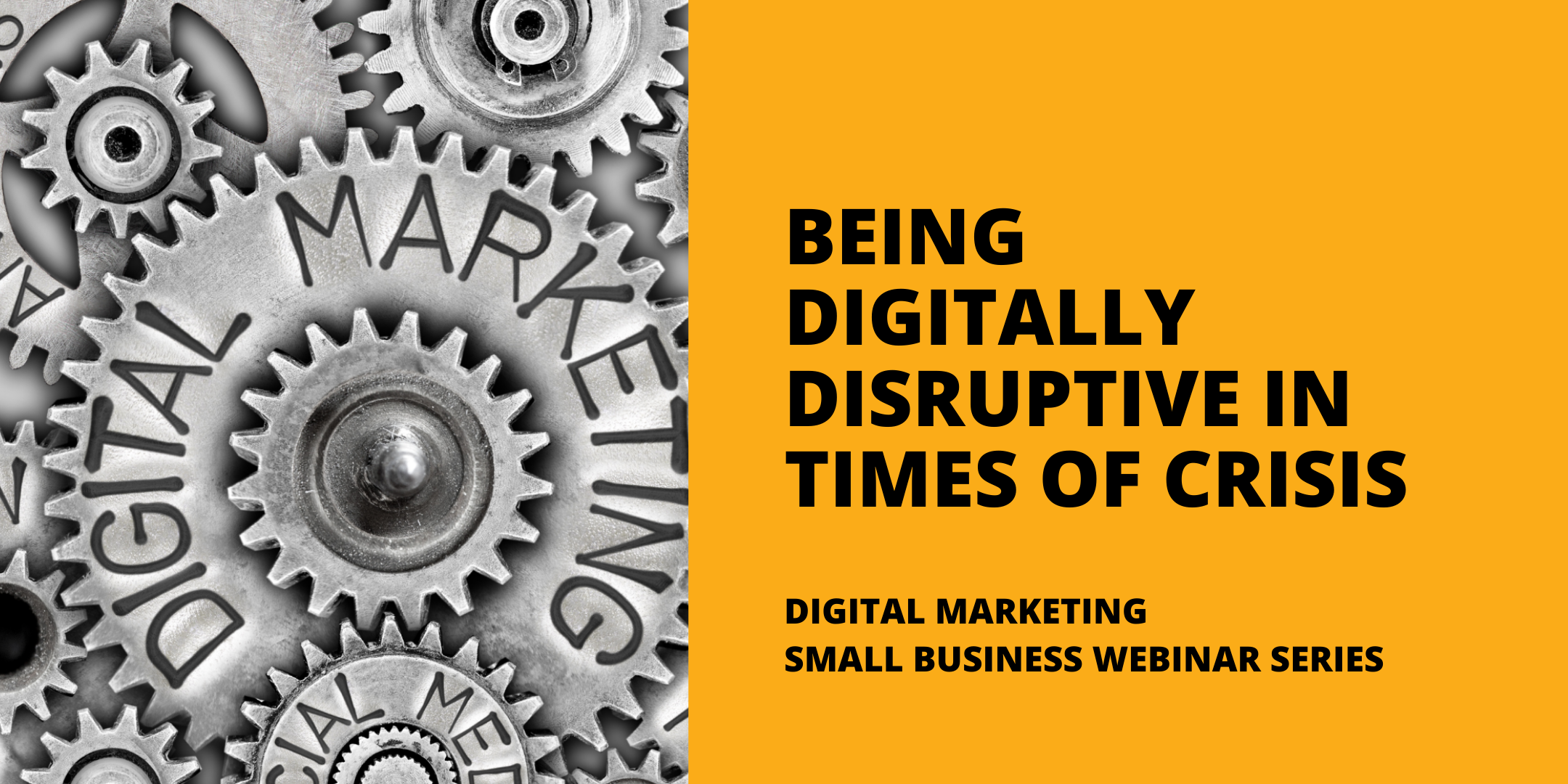COVID-19 means it is not business as usual. It may not be “usual” for a long time. For the past few years, we’ve become used to opportunities created by digital tools disrupting long established business models. Now? We’re seeing established digital models being disrupted by rapid pivots to how business is done to meet customer needs during this crisis.
Darrell Keezer is the CEO and Founder of Candybox Marketing, a full service digital marketing agency based in Mississauga. He recently delivered a webinar to the MBEC community about being digitally disruptive in a time of crisis. The webinar asked how small businesses can leverage digital marketing tools and mindsets to pivot course and stay in business during COVID-19 and the phased re-opening we are already seeing. After all, if digital disrupted business as usual by changing the methods and modes of business circumstances, what will happen now that digital is being disrupted by circumstances of life?
It’s impossible not to marvel at how quickly business circumstances have changed, and they changed again in recent history. Airbnb disrupted the hotel business models that were hundreds of years in the making. Uber disrupted the taxi industry and local plate rental and licensing practices in cities across the world. During COVID-19, both of these news disruptors have seen their massive, rapid gains curtailed. That doesn’t mean opportunities realized during this crisis will fade as soon as it is over.
Marketing opportunities on smaller budget
According to Keezer, a pivot in business marketing strategies and practices can help businesses survive during this period of digital disruption. One of those opportunities comes from having less competition for your marketing dollars.
“If you look at Google Search, for example,” Keezer says, “there is 49% less competition. That means, the price per click on your ads are now half the price. Online ads are priced on an auction model. We’re at an advertising auction where there is so much inventory and just half as many bidders as usual. It means companies have slashed marketing budgets as opposed to slashing people from the pay roll, but the opportunity is that your ad acquisition costs have just gone down by as much as 85%.”
What does it mean when everyone is an influencer?
Time is also on the side of digital marketing practices right now. With more time to spend researching products and talking about them, consumers are becoming rich with information about purchases they are making now, and about those purchases they plan to make in the future. If your marketing materials include sharable content, personal contact with potential customers, profiling and stories, then you’re accessing the power of social marketing via influencers.
“Every single person with access to a social media channel and their phone has an opportunity to post about a business,” Keezer says. “Recently, companies have entered into marketing agreements with social media influencers with a large number of followers, but when you look at lot of posts about products and companies that go viral, they don’t come from those influencers, but from ordinary people with a few hundred followers they know really well and connect to on personal, emotional level.”
Acknowledging that everyone is an influencer on their own social media channel is one strategic pivot companies can make in their marketing strategy. It means seeing every exchange with a potential customer as an exchange with someone of social influence.
What tactics are available to help companies pivot their course?
Pivoting tactics aren’t limited to interactions with customers as influencers. Whatever was happening last year, needs to pivot, Keezer says. That’s true for all digital strategies, tools and methods.
“You might not be able to just change your web site because it’s a huge corporate undertaking with a chain of approvals,” Keezer admits, “but you can create a COVID-specific landing page to immediately connect with your customers and potential customers about current conditions.”
The use of landing pages is one tactic the Candybox CEO highlights in the need to over communicate, By over communicating, Keezer does not mean increasing the frequency of communication, but providing content that is richer in information.
“Most digital marketing is feed marketing,” Keezer explains, “so if they are not interested, they can just scroll past. What we want to do is to give customers and potential customers more information than they necessarily need to know.”
Why over communicate?
Over communication is a strategy Candybox has implemented itself.
Our particular situation is to over communicate to all of our clients through video,” Keezer says. “We let them know we are still open and still growing by giving our customers a glimpse into our team members’ workspaces in their homes. It helps to create an emotional connection by seeing into the lives of team.”
The weekly videos are structured to include the four goals of over communication:
1. Transparency
Tell your customers how your company is doing, what you are doing and how you are doing it.
2. Clarity
Be clear about how and when you want your customers to respond to you and interact with you during this time.
3. Stand out
Remember that what differentiates your company from your competition still applies and new ways of differentiating yourself may appear now. Remember, many of your competitors may not re-open after this crisis.
4. Focus on the long term
Your customer may not be planning to make a purchase or engage your services immediately, but they are gathering information for when their situations improve and they have a regular income again. Good marketing communications acknowledge that crises do not last forever and you’ll be there for your customers as conditions improve.
It may not be business as usual as disruptors themselves continue to be disrupted by COVID-19. The ability to pivot strategies and communicate with customers about those pivots, may prove to create agile businesses that can fill niches and respond to immediate needs like never before.
The Mississauga Business Enterprise Centre (MBEC) is your central source for small business information, resources and guidance. If you have a small business related question, please review our frequently asked questions, steps to starting a small business, or ask a question. Our team of small business experts are available to assist.
To learn more and register for our upcoming webinars and events, please visit mississauga.ca/smallbusinesstraining





